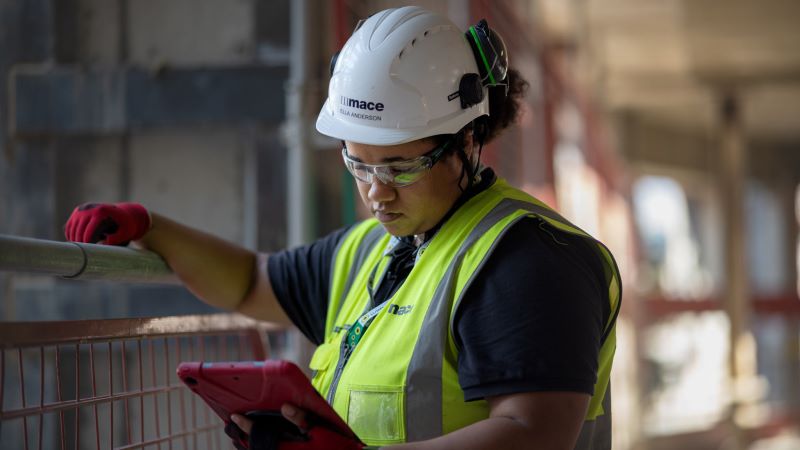Weathering the economic storm
In many ways, the construction sector is at an inflection point. A challenging economy, a rising climate and a need to attract new skills and labour are just a few of the issues forcing business leaders to make tough choices on how to navigate rocky terrain. With businesses struggling across supply chains, it's more tempting than ever to opt for the short term success of remaining ultra-competitive, but the interconnectedness of the world we live in today means that one company winning in the wrong way can have consequences for the rest of the industry.
A double-edged sword
The end of 2023 saw the UK enter a recession, which has contributed to falling material prices and easing labour costs. With many businesses facing challenges, it’s understandable that contractors wondering how they will make ends meet might see this as a welcome break. However, taking this opportunity to lower tender prices in an attempt to win more work may well have unintended consequences that weaken the sector as a whole.
Suppliers are facing the same economic pressures as the rest of the industry, and we’ve already seen some unable to shoulder these hardships and close their doors for good. Contracts won at these lower prices mean passing on the financial pressure to suppliers, whose health and business capabilities underpins our entire industry.
Ultimately, this impacts the sector’s ability to deliver meaningful and sustainable work for our clients. When a recovery does take hold, a market with a smaller supply chain – as a result of insolvencies – could see supply prices shoot up, resulting in skewed allocation of risk and a less collaborative, more inefficient process. The built environment is a key pillar of global development and so weakening our sector like this could slow progress and impact real end-users the world over.
Competitively altruistic
Competition is key to a healthy and robust market. As a competitive person myself, I know the satisfaction of creating a service that suits a client’s needs and beating other firms to win a partnership. Humankind has always benefited from the drive to surpass and supersede previous efforts and competition is key to that; it makes us all better and it makes the world a better place.
However, there is, and always will be to an extent, a need to balance this against the long-term success of our industry. Currently, independent organisations like the Construction Leadership Council and Build UK are leading the way when it comes to facilitating fair and best practices. For this to succeed though, it can’t just be our trade bodies advocating for the health of our entire industry. We all have to think more about one another – considering the whole sector rather than just our own organisations.
Supplier security means more client certainty
There are many challenges that can divert a project during its implementation and a tougher economic climate adds a greater risk of business failure. Contractors offering low prices that underbid their competition increases this risk, as these low prices may put them and their suppliers in difficult positions. The truth remains that premium delivery and, just as importantly, positive project experiences, cost more money, as these rely on a robust industry with a healthy supply chain. We are seeing instances of clients reneging on their decision to opt for the cheapest bidder, by going back out to the market with a view to replacing, or propping up, their underperforming supplier.
Clearly, this is not a situation the industry wants to find itself in; there’s a better way. A ‘one team’ mentality when it comes to contracting can ease the burden of risk and create a fairer working environment. Shared accountability between suppliers, contractors and clients (where appropriate) drives performance across the entire team, ensuring that everyone involved has the trust, buy-in and security to contribute positively to each project. A good contract in this context consists of shared objectives, KPIs and commitments, as well as a clear incentive structure for good performance. All of this allows and encourages all partners to reach their maximum potential.
The future is in our hands
Construction as an industry has a large responsibility when it comes to shaping and guiding the future. The built environment plays a central role in peoples’ safety, culture and communities and so there will always be a need for it. But our ability to fulfil this need depends on how we come together now.
There are plenty of examples within our industry of firms making brave and bold decisions when it comes to reaching Net Zero. Whether it’s the promotion and implementation of low carbon concrete, innovative piling techniques, or the continued rise of modern methods of construction, it’s clear that minimising our environmental impact is almost universally high on the agenda.
Now is the time to be brave as consultants and contractors, and make the hard decisions our industry needs to grow sustainably. We need to consider the success of our suppliers our own success; after all, we rely upon each other to deliver the results we are all striving toward. Building a collective mindset now will serve us especially well when economic headwinds are once again in our favour. To build the construction sector we all want to work in, we need to start now.












